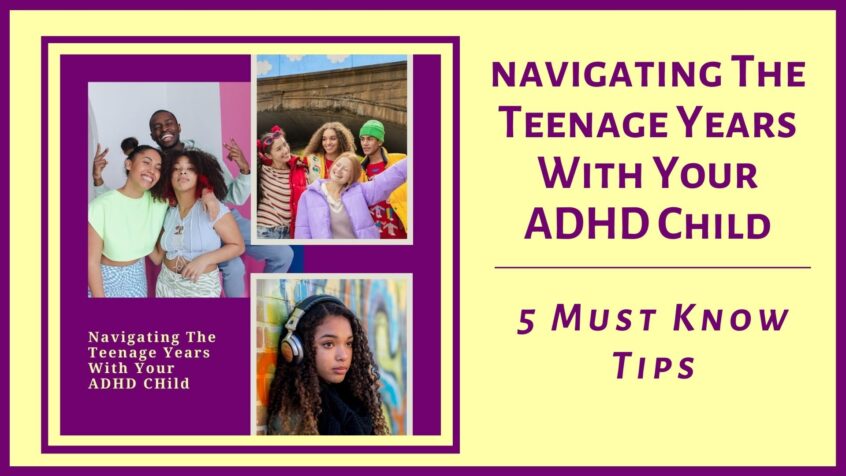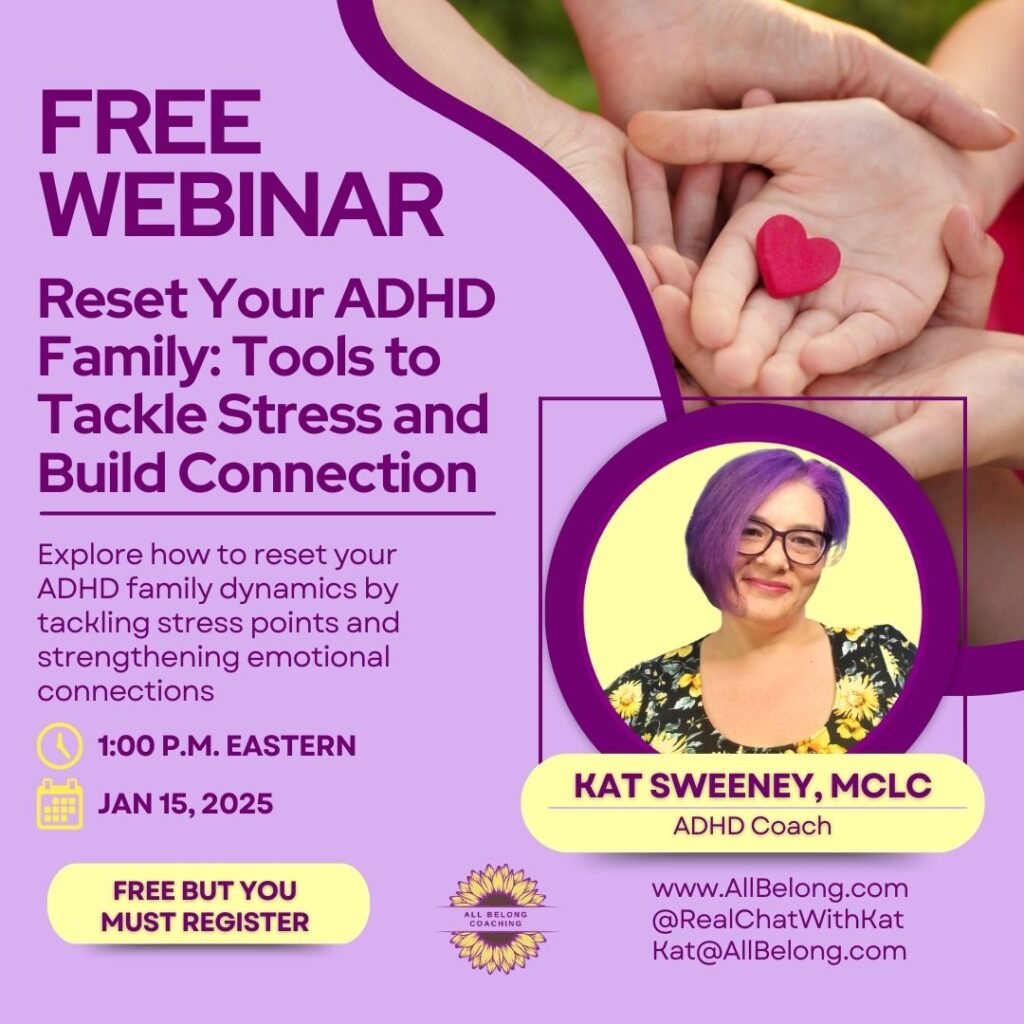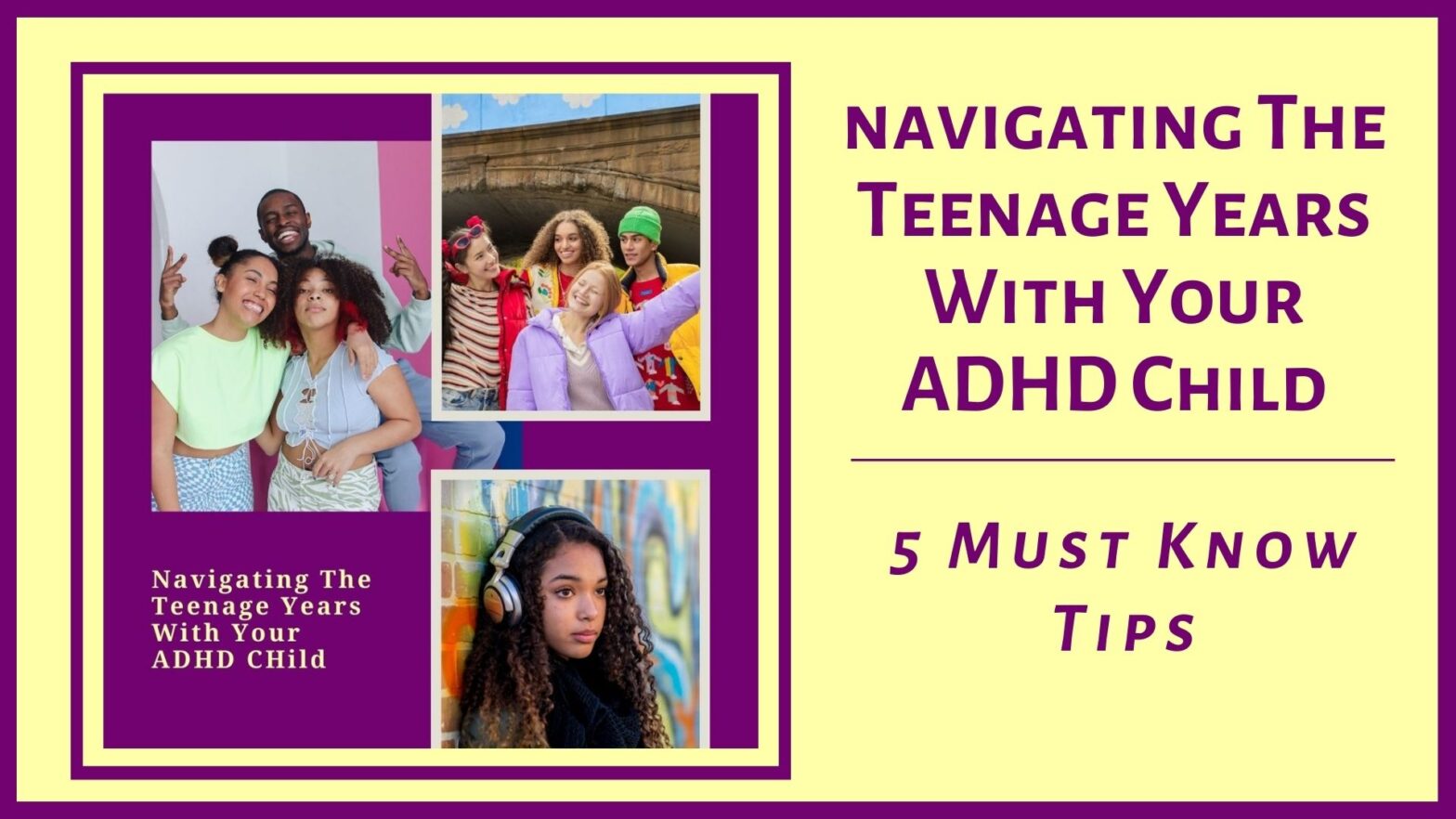Navigating The Teenage Years With Your ADHD Child
Five Must Know Tips

Navigating the teenage years can be challenging for any parent, but raising teens with ADHD adds an added layer of challenges. From school stress to social pressures to fast developing brains, teens with ADHD often face a unique set of struggles. Let’s chat about a few tips to help parents help their teens thrive during this critical period. Here’s five must-know tips.

Focus On Strengths
One of the best tips that I have for you is to focus on your teen’s strengths. Teens with ADHD are often bombarded with messages about what they are doing wrong, what they are not good enough at, etc. Whether it’s organization, focus, paying attention, regulating emotions, they are told exponentially more negative things than postive.
Because of this, it’s even more important to counterbalance this negative input by identifying their natural talkents and interests. Whether it’s a passion in art, excelling in sports, a hidden talent for technolocy, a compassionate personality, or other unique talent, honing in on what makes them shine and brings them joy can boost their confidence and the whole family’s. Not only does helping them see their abilities improve their self esteem, it also motivates them to push through challenges, building that all important resilience.
Have Realistic Expectations
Our teens with ADHD may be emotionally or developmentally behind their neurotypical peers in various areas of executive functioning. These delays can be up to 30% behind their neurotypical peers.
So if your 16 year old has some skills only in the 13 year old range – that’s common with ADHD and your expectations need to be based on their developmental age, not their chronological age. It is important for expectations to be realistic and they meet your child where they are.
Instead of focusing on how behind they might be, celebrate every small win and growth in the areas they are working on. Understand that your teen will make mistakes and setbacks are a part of the journey. Practicing patience, empathy, and a growth mindset will go a long way in maintining that all important connection needed for a healthy parent-teen relationship.


Promoting The Core Four
The Core Four refers to four essential habits I believe are crucial to managing and thriving with ADHD. These are Rest, Nutrition, Hydration, and Movement. You can read more about them HERE.
- Rest – not just sleep, but real rest, refreshes the body and the brain. This is sleep, yes, but also simple down time. Time for joy.
- Nutrition – this is different for different people. Your body, your teens body, needs to be lovingly nourished. How that looks to you and your family only you know best. Encourage your teen to nourish their body in ways that make them feel goodl
- Hydration – Dehydration can impact our kidneys, our skin, our congitive abilities, and more. This can lead to delusions, confusion and more. Keeping hydration in our bodies keeps us running smoothly.
- Movement – I dislike using the term “exercise” – movement is what your body needs. Traditional exercise is great if you enjoy it or find ways to make it work for you. But seriously just getting our bodies to move is good. Encourage and model the importance of even small movements.
Collaborate By Offering Autononmy With Boundaries
As your teen grows and matures, they need more independence, but teens with ADHD often require a little extra guidance and scaffolding. Collaborating with them by offering autonomy within clear boundaries will help them to feel empowered, while you maintain some control over the most important areas.
This can mean allowing them to make decisions about their time, like when they do their homework – while still setting expectations for completion. It also can be helpful to involve them in setting the house rules and consequences so that they feel a sense of owernship and are more likely to give you “buy in” than things they are simply told. Allow teens to have some say in decisions whenever possible.


Teach Self Advocacy To Teens With ADHD
Self advocacy is one of the most valuable skills that we can teach our ADHD teens. Teens with ADHD need to learn how to articulate their needs – in school, relationships, or in the work place.
This can involve explaining their ADHD to teachers to get accommodations, or telling friends what they need during social interactions. Start by encouraging them to speak up for themselves in small situations, such as when they need help at school or extra time for an assignment. Role play scenarios where they have to advocate for themselves to prepare them for how the conversation might go.
By learning self advocacy skills, your teen will gain the confidence to feel more control in their life. This sets them up for future success in adulthood.


Reset Your ADHD Family:Tools To Tackle Stress and Build Connection
A Free Webinar
Wednesday, January 15
Do you feel disconnected from your child(ren)?
The New Year is the perfect time to press the family reset button. If you are looking for easy-to-implement solutions rather than generic advice, this webinar delivers actionable tools tailored to ADHD families.
In this webinar we talk about creating a plan to tackle stress, regulate ourselves, and bring more harmony to your home.
Webinar is totally free but you must register to save your seat!
Navigating the teenage years with ADHD requires a balanced approach of support, guidance, and autonomy. By focusing on strengths, setting realistic expectations, promoting healthy habits, collaborating on boundaries, and teaching self-advocacy, you can help your teen not just survive, but thrive.
If you’d like help, book a free, no obligation discovery call today and let’s chat!

 Don’t Delay Joy
Don’t Delay Joy
Kat Sweeney, MCLC

